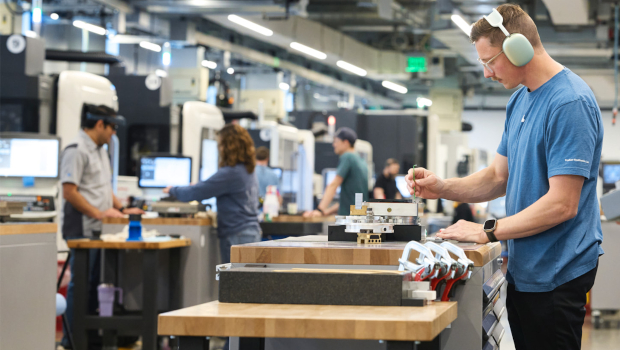
Apple slightly outperforms expectations, but trade tensions continue to worry investors
Apple seems to have benefited from the trade war sparked by US president Donald Trump as consumers worried about tariffs chose the first quarter of 2025 to buy a new iPhone.
The Cupertino, California-based tech giant reported revenues of $95.36 billion and profits of $24.6 billion for the fiscal second quarter (ended March 29).
IPhone sales came in at $46.84 billion, slightly higher than expectations of $46.17 billion.
Still, Apple shares fell 1.5% in after-hours trading, despite the better-than-expected numbers. Investors are now focusing their attention mainly on the possible impact of new US import tariffs in the coming quarter.
So far, electronics have been largely unaffected by US tariffs, but Washington has recently sent signals that that could change. Uncertainty about that has affected the stock of Apple, which has about 90% of its products manufactured in China.
According to Reuters news agency, Apple is trying to circumvent possible tariffs by moving some of its production of iPhones for the US market to India.
Products from China are now subject to a 145% import tariff, while India’s tariff is significantly lower at 26%. Moreover, the duty on Indian goods has been temporarily suspended, pending negotiations between India and the United States on a trade agreement.
According to the Financial Times, Indian factories are set to eventually assemble more than 60 million iPhones a year, which would double the current production capacity in that country.
The development marks a profound shift for Apple, which for years has had most of its iPhones manufactured in China. In the city of Zhengzhou, also known as ‘iPhone City,’ hundreds of thousands of workers are involved in manufacturing the device.
Apple further announced that it is appealing the €500 million fine imposed on the company by the EU. According to the European Commission, the company is still too much in the way of developers. Developers must be able to inform their customers free of charge about offers that run outside the App Store. But that obligation was insufficiently fulfilled by Apple.
The company calls the ruling “yet another example of the European Commission unfairly targeting Apple”. The White House threatened retaliation, but it has not yet been announced.
Emerce






Subscribers 0
Fans 0
Followers 0
Followers